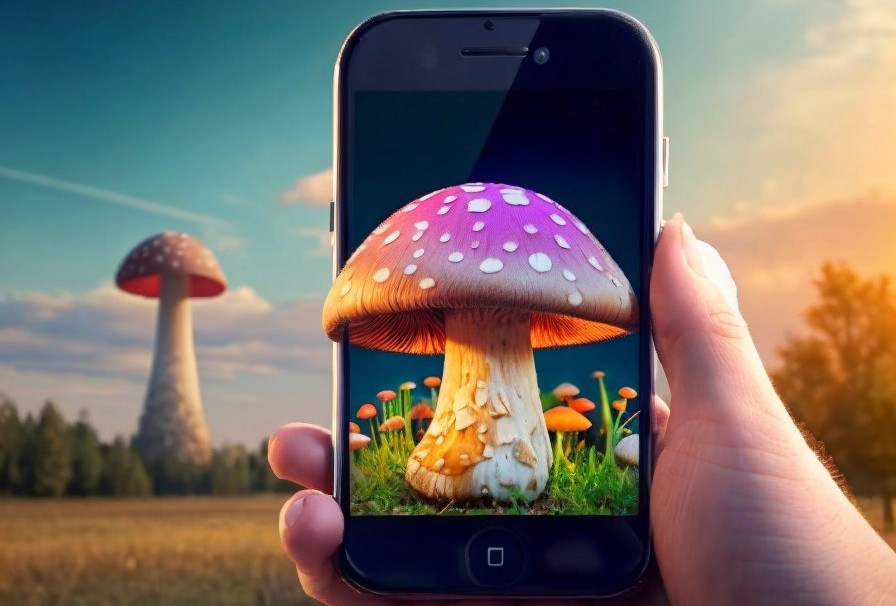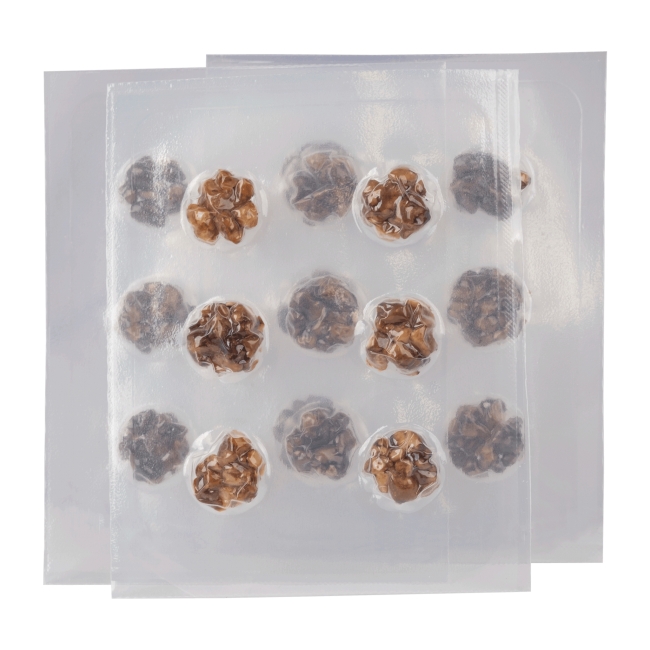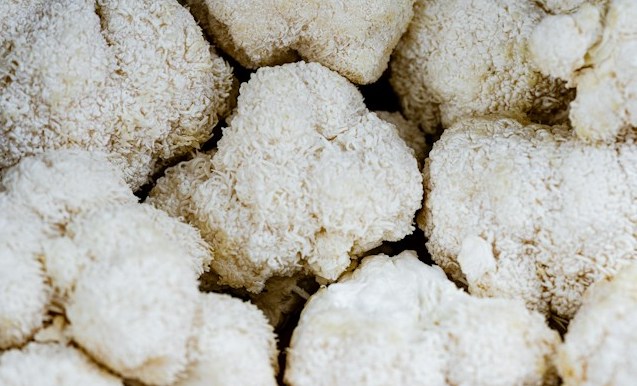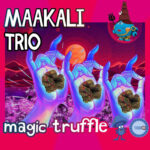For a long time, microdosing was a word-of-mouth practice spread by those who gushed about its benefits. As psychedelic research grew, much focus was placed upon studying larger doses of psilocybin, the psychoactive compound in magic mushrooms. ‘Macrodoses’ were found to have incredible potential as treatments for a whole host of mental health conditions such as depression and PTSD. These larger doses will soon find their place as stalwart end-of-life treatment, as well as the much-longed for breakthrough for those suffering from eating disorders. It’s tremendously exciting.
However, the study of microdosing lagged a little. It was harder to measure, especially as the doses are ‘sub-perceptual’ by definition. Researchers realized that maybe the most efficient way was to look at how microdosing first got its buzz: through word of mouth and anecdotal experience.
The Microdose Tracking App
You might remember some time ago we reported on the newly developed app called Microdose.me, a tool for tracking one’s microdosing habits. Paul Stamets, Mr. Mushroom himself, even acted as a consultant in its development. By the end of 2022 over 22,000 individuals were tracking their microdosing journey via the app.

How does Microdose.me Work?
Basically, the makers of Microdose.me aim for it to work as a database of sorts. This data is then analyzed to obtain any findings. The way the app itself works for the user, is essentially as a tracker. You can track your microdosing journey, while also testing your brain skills with small tasks, to see if microdosing has caused improvement in specific areas of your life. When you first sign up, you answer a brief questionnaire that covers basic demographic information, basic medical history, and your self-reported experience with psychedelics. After this questionnaire you will complete a few tasks in the app that test cognitive function, to establish your baseline data. It all takes around 30 minutes.
After this, when it comes to actually using the app, you are encouraged to check in once a day and answer a few questions, taking only around 1-2 minutes of your time. Each month there is one longer check in that takes around 20 minutes, to really explore the effects of microdosing that you are experiencing.

Those Who Microdose Report Better Mental Health, Study Finds
So, what did they find so far? Well, by analyzing the self-reported data by those using the Microdose.me app, the researchers uncovered some exciting results. The study, published in Scientific Reports fully backs up the claims that those who microdose have made for years. The research, which was carried out at the University of BC, found that those who microdosed showed greater improvements in both mood and mental health than those who didn’t.
Joseph Rootman, MA, a PhD student in Clinical Psychology at the university, and co-leader of the study said;
“There are an overwhelming number of anecdotal reports testifying to the benefits associated with psychedelic microdosing and a relative scarcity of empirical evidence to support these claims… This gap in the literature calls for a quick response from the scientific community for investigation into this ongoing but largely untested practice.”
Zooming in on the Study
The observational study followed 953 people who took regular microdoses of psilocybin, and a second group of 180 people who did not microdose, but who all used the Microdose.me app. Over 30 days, the participants were asked to complete a number of questions and tasks that assessed their mental health, mood, and cognition.
For example, a notable task featured in the study was the ‘finger tap test’. Using a smartphone, finger taps are measured to assess psychomotor ability. This test can actually be used as a marker for neurodegenerative disorders like Parkinson’s disease. In participants over 55 microdosing was associated with improved psychomotor ability. Rootman said;
“We generated a number of interesting novel findings… For one, our study is the largest longitudinal study to date of microdosing psilocybin and one of the few studies to engage a control group.”
Over 55s Get a Boost From ‘Stacking’
This control group enabled the researchers to dig into different variants of microdosing practices such as ‘stacking’. This is when psilocybin microdoses are combined with other non-psychedelic substances to optimize or enhance them. For example, the legendary brain-boosting combo of psilocybin, lion’s mane, and niacin (known as the Stamet’s Stack) was most notably effective, and for those over 55, even more effective than psilocybin on its own. Rootman said;
“We found that the combination of psilocybin, lion’s mane, and niacin was associated with an increased performance on a task of psychomotor performance, especially in older adults…
…Anecdotal reports suggest that the combination of psilocybin, lion’s mane, and niacin is beneficial in preventing cognitive decline among older adults and our findings, indeed, lined up with these suggestions in the context of a test of psychomotor ability,”

The Effects of Microdosing Psilocybin on Mood and Mental Health
Previous studies have found that those who microdose report less stress, better mood, and a decrease in symptoms of depression, anxiety, PTSD, and OCD.
“In our study, microdosing was associated with greater observed improvements in mood, mental health, and psychomotor ability,” Rootman says.
Although this study is the most comprehensive of its kind, with promising results, there is still more to do in the study of microdosing. Due to the restrictions on the study of psychedelics only recently lifting, we are far behind in the research game — but catching up fast. As this study has shown, those who microdose do report better mental health outcomes. Millions who suffer from mental health conditions across the world can only benefit from further investigation.
Enter The “Placebo Effect”
New studies on psilocybin’s effects on the brain and its proven therapeutic applications reveal genuine clinical results. Interestingly, recent research reveals that individuals receiving placebos, instead of actual microdoses of psilocybin, also demonstrated some tangible improvements, challenging the conventional effectivness of assessments through placebo tests. This paradigm shift underscores the significant impact of a patient’s mindset in receiving proper healthcare and a supportive environment on physical health improvements, irrespective of active substances. Furthermore, even among those who physically ingested psilocybin, the group’s positive mindset and context significantly shaped outcomes. The holistic influence of mental state and environment on overall well-being highlights a promising future for psychedelic and holistic health research, emphasizing the crucial role the mind plays in achieving positive health results.
Microdosing psilocybin undeniably holds real positive effects and huge potential, with the crucial recognition that the mental aspect of medicine is just as impactful as the physical treatment becoming clearer and clearer.

If you haven’t explored the microdosing realm yourself yet… What are you waiting for?





